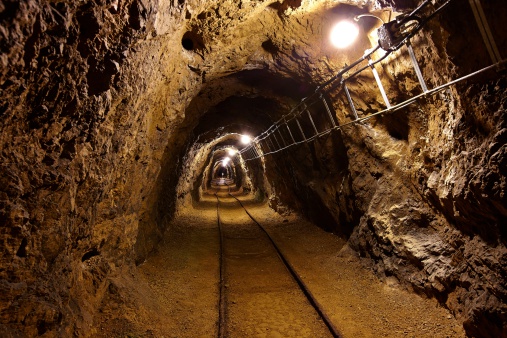
Potential legislation would give coal miners greater access to medical evidence and legal counsel.
Black lung disease kills hundreds of miners every year, but it is increasingly difficult for those afflicted with the disease to access promised federal benefits. After a spike in the number of miners with black lung, members of Congress introduced a bill in the last Congress that, if introduced again and passed in the 114th Congress, would lead to an overhaul of the benefits program.
Senators Bob Casey and Jay Rockefeller, along with leading Senate and House members, introduced a bill in November aiming to bolster the procedural fairness of hearings that decide miners’ benefit claims from the U.S. Department of Labor’s Black Lung Benefits Program. If Senator Casey and others reintroduce it in the new Congress and it passes, the bill, known as the Black Lung Benefits Improvement Act, would increase claimants’ access to quality medical evidence and attorney representation, as well as strengthen criminal penalties for false statements and failure to disclose additional evidence in the claims process.
Black lung disease afflicts miners when they breathe an excess of coal dust, causing nodules to form in their lungs. This formation process causes internal scarring and stiffness, slowly reducing lung function and making breathing difficult. The disease makes it difficult for afflicted miners to walk up stairs or perform other simple tasks without leading to overexertion. While the prevalence of the disease can be mitigated if mines operate with proper ventilation systems that decrease the concentration of coal dust, the disease’s pervasiveness is still increasing among coal miners.
The Black Lung Benefits Program, a specialized workers’ compensation program for miners with black lung disease, provides monthly payments and health care benefits to miners who successfully show they are disabled from the disease. A miner’s former employer funds a substantial part of these benefits if a claim is successful.
Mine operators generally oppose new claims for benefits by presenting government hearing officers with an abundance of expert medical evidence that disputes miners’ claims that they have black lung disease. As current science is not able to make a firm medical distinction between black lung disease caused by coal dust and lung disease caused by smoking, the expert medical opinions are often determinative in government decisions to award or withhold benefits. This ambiguity is an acute problem in the Department of Labor’s hearing process because in areas where underground coal mining is prevalent, so too is smoking. The overwhelming majority of underground coal mines are located in Kentucky and West Virginia – the two states with the highest smoking rates.
Mine operators are not required to disclose medical evidence they choose not to present at trial, leading some expert opinions to be left out. The Labor Department generally provides miners with a single medical examination and opinion, but it will provide a second medical opinion on appeal for miners having at least 15 years of experience who were granted benefits at the initial hearing.
In part due to the imbalance in access to evidence and also a difficulty in retaining counsel, many commentators worry that the proceedings pose significant challenges to claimants. It is notable that although studies have shown black lung disease to be on the rise, the rates at which claimants obtain benefits have hit new lows – about 14% on initial claims, and even lower after appeals. The Government Accountability Office has confirmed these concerns, finding that “coal miners face a number of challenges in pursuing federal black lung claims, including finding legal representation and developing sound medical evidence to support their claims.”
Hoping to alleviate these challenges, the Casey-Rockefeller legislative proposal would require parties to disclose all developed medical evidence, regardless of whether it would be used at trial. In addition, the bill would force the Labor Departmnet to conduct checks on all doctors providing medical opinions to ensure they are properly qualified and free from conflicts of interest. These provisions would give judges conducting initial benefit hearings greater access to high quality expert evidence to assist in decision-making. The new provisions would even allow miners or their survivors to reopen old cases if they were decided on the basis of discredited medical interpretations.
Although a significant number of claimants represent themselves in benefit hearings, the new bill proposes a fund to assist with the cost of attorneys’ fees. Notably, this fund would be able to begin compensating attorneys before the end of the claims process, which is currently not allowed. As claims generally take two years or more, easier access to fee payments is likely to create more incentives for representation.
To support the new requirements, the bill would also strengthen criminal penalties and benefit hearing judges’ ability to sanction parties when participants withhold medical evidence or make false statements during any portion of the claims process.
Thus far, no member of Congress has opposed the approach proposed in the Casey-Rockefeller bill. However, Senator Rockefeller did not run for re-election this fall. Representative Shelley Capito, who will replace Senator Rockefeller in the Senate later this month, has declined to take a position yet on the proposal.
Senator Casey and other co-sponsors who signed onto the bill in the 113th Congress have indicated that they intend to re-introduce it for discussion next year during the new congressional session.



